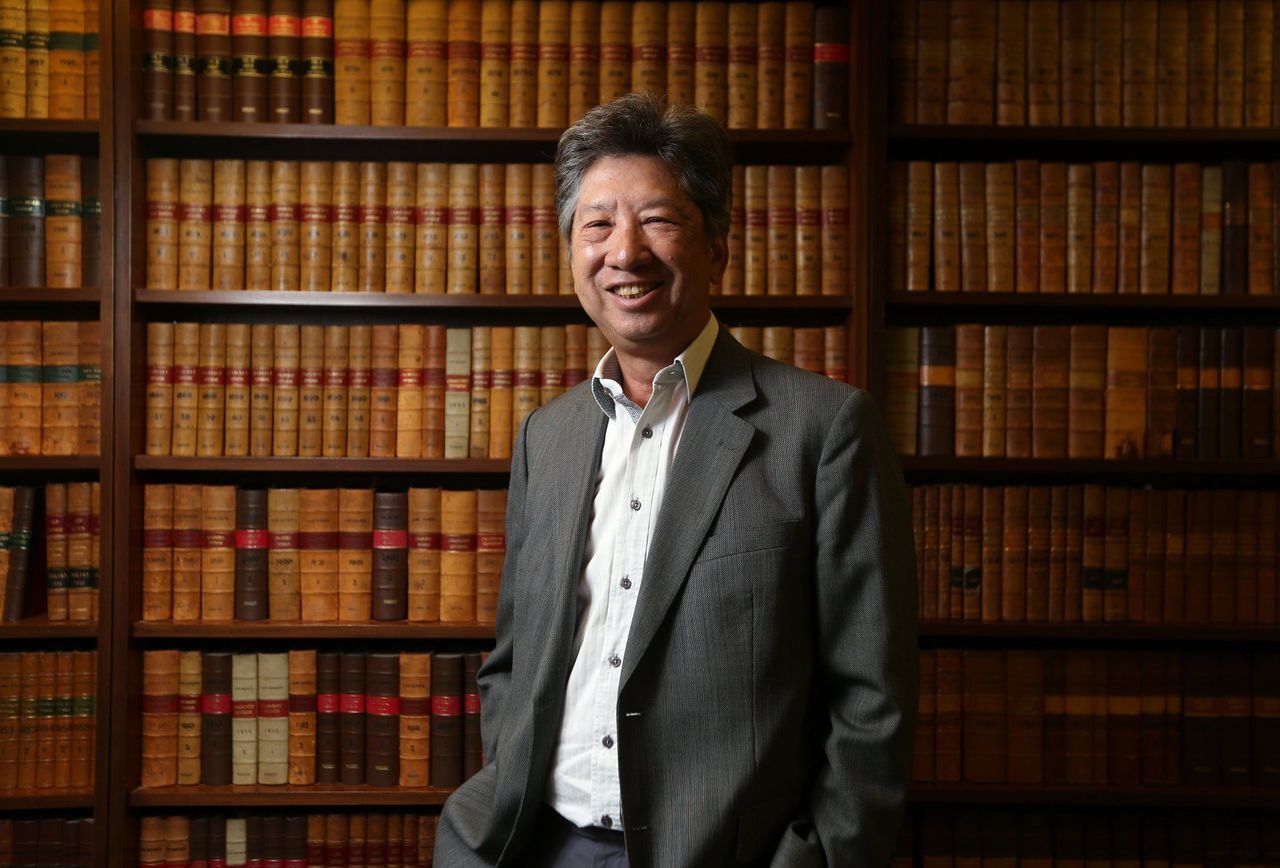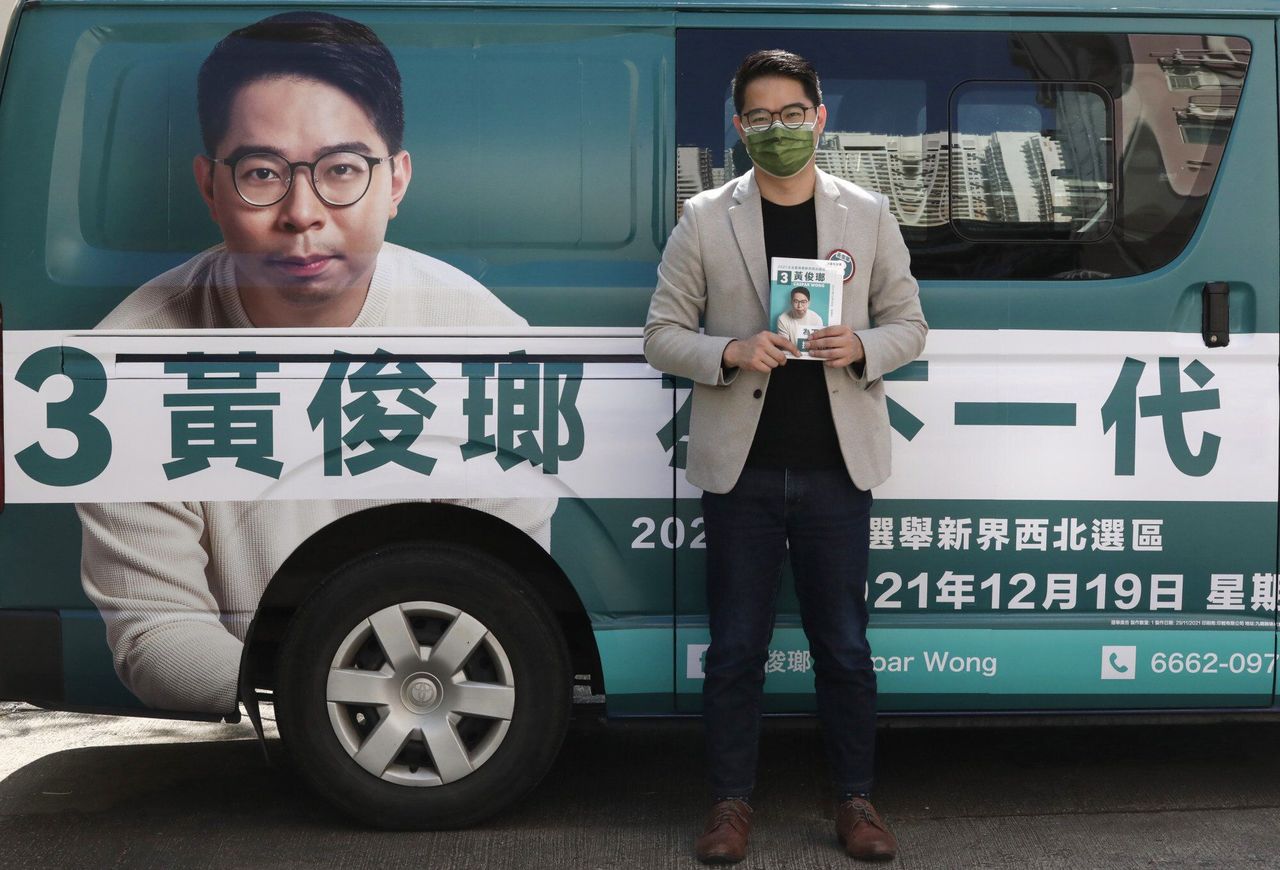Hong Kong News

Voter support far from clear for Hong Kong’s centrist Legco poll hopefuls
Neither “yellow” nor “blue”. Neither pan-democratic nor pro-establishment. This was the space in Hong Kong politics that former lawmaker Ronny Tong Ka-wah wanted to carve out when he founded the Path of Democracy think tank in 2015.
The organisation was born the year after the Occupy movement brought parts of the city to a standstill for 79 days as protesters sought to press the government for universal suffrage and which left society deeply polarised. Tong, now a senior adviser to the city’s leader, called his new group a “third path”.
The organisers said at the time they wanted to offer ideas and candidates distinct from the pro-establishment camp, which they accused of lacking independence from Beijing, and the opposition bloc, which they said did not have the will “to negotiate and solve problems”.
 Ronny Tong, veteran politician and adviser to the city’s leader, founded Path of Democracy in 2015.
Ronny Tong, veteran politician and adviser to the city’s leader, founded Path of Democracy in 2015.
But six years later and party member Jeffrey Chan Chun-hung admits he avoids using the phrase “third path” when meeting residents as he campaigns ahead of the Legislative Council election on December 19.
“They have no idea what that means,” said Chan, who is running for one of the two seats in the geographical constituency of Kowloon East. “It will take me 30 minutes to explain the concept, but I don’t have that many half-hours.”
Instead, the 44-year-old company director simply tells his constituents he is “not from the pro-establishment camp”, with his manifesto centred on restarting reforms for universal suffrage.
Chan is among about a dozen moderates competing in the Legco race, the first since Beijing revamped the city’s electoral system to ensure only “patriots” hold political power but which mainstream opposition parties are sitting out.
Centrist candidates say they want to bring an independent voice back to the legislature, but the level of support among residents, long accustomed to aligning themselves with either of two clearly defined camps, remains uncertain.
Candidate Caspar Wong Chun-long, vice-chairman of the middle-of-the-road Third Side party established in 2016, has put the question at the heart of his campaign, adopting a slogan that states: “Is political homogeneity really what you want?”
“I tried to tell the residents that many issues – such as poverty – will not be taken care of if the legislature is completely dominated by the pro-establishment bloc, which often only cooperates with the government,” Wong, who is running in the New Territories North West, said.
 Third Side candidate Casper Wong, who is seeking a seat in the New
Territories North West geographical constituency, canvasses for votes at
Po Tin Estate Tuen Mun.
Third Side candidate Casper Wong, who is seeking a seat in the New
Territories North West geographical constituency, canvasses for votes at
Po Tin Estate Tuen Mun.
Wong, a 30-year-old executive, said the political spectrum had undergone a dramatic transformation since the Legco poll five years ago, notably the drastic shrinking of the radical pro-democracy faction.
“It will be even more confusing to the residents if we still talk about the centrist approach today,” he said.
Independent candidate Jason Poon Chuk-hung, who is running in the Hong Kong Island East constituency, was less worried about positioning himself, saying he “despised” any attempts to label candidates “yellow” or “blue”, the colours associated with the fight for greater democracy and the authorities, respectively.
Poon even took issue with the label centrist and said the political middle had been “degraded” by groups such as the Path of Democracy or the Third Side, which he claimed were in fact pro-establishment.
Instead, Poon said candidates should be categorised by whether they had a “conscience”. In his campaigning, he has stressed his role as the whistle-blower who exposed shoddy construction work that plagued the city’s railway operator, the MTR Corporation, in 2018.
“I am adamant that half of the voters in the middle actually do not have an absolute political stance. In fact, their take varies on different issues,” he said.
Poon suggested most Hongkongers might be more inclined to side with the opposition bloc in their views on the mob attack at Yuen Long MTR station in 2019, when more than 100 white-clad men with rattan and wooden sticks injured about 45 protesters and commuters in one of the most infamous events of the social unrest that year.
Police came under fire for their slow response, with officers arriving 39 minutes after the violence. The force said it faced manpower constraints handling unrest that night in the heart of the city.
 Independent candidate Jason Poon, who is running in the Hong Kong Island
East constituency, distributes leaflets to residents in Tai Koo Shing.
Independent candidate Jason Poon, who is running in the Hong Kong Island
East constituency, distributes leaflets to residents in Tai Koo Shing.
But on other issues and incidents, such as the pan-democrats’ practice of hurling objects in the legislature to show their displeasure, many voters feel the pro-Beijing camp was right in criticising such a tactic, he said.
But centrist candidates do agree on at least two points: the pressing need to encourage residents disillusioned with voting following Beijing’s shake-up to cast their ballots on December 19, and the difficulties the hopefuls face in securing backing from traditional oppositional parties, which had strong voter networks in the community.
In an online survey conducted by the Hong Kong Public Opinion Research Institute (Pori) early this month, 40 per cent of the 6,400 respondents had said they “most likely” or “absolutely” would not vote.
A separate Pori survey this month found 86 per cent of respondents who identified as supporters of the pro-democracy camp said they felt no candidate running for a seat in the directly elected geographical constituencies was worthy of their vote.
Chan, of the Path of Democracy, said he had approached several pan-democrats for help but it was in vain. Some feared others would label them as getting too close with candidates deemed pro-establishment, while others, mostly former district councillors, were reluctant to step back into politics given the current climate, he said.
The Democratic Party, the city’s biggest opposition party, which is not fielding any candidates in the election, met on Monday and decided not to give the organisation’s backing to anyone.
The party only permitted one member, former Tsuen Wan district councillor Li Hung-por, to support Adrian Lau Cheuk-yu, a moderate running in the New Territories South West constituency. About five centrist candidates, including Poon and those from the Third Side, had sought help from the Democrats.
Party chairman Lo Kin-hei said he believed these middle-of-the-road aspirants came to them because they thought voters would be more encouraged to cast their ballots if someone with a “stronger” pro-democracy background was involved.
But Lo cast doubt on this logic. “There is no guarantee that we can make such a difference,” he said.
Political analyst Derek Yuen Mi-chang, who considered running in the Legco poll as a moderate when it was initially set to take place last year before being postponed due to the Covid-19 pandemic, was deeply sceptical of the viability of a “third route” in Hong Kong.
Yuen argued it was nearly impossible to convince the public these middle-of-the-road candidates were independent when the overhaul to the political system now required they secure enough nominations from the Election Committee, a powerful body dominated by Beijing loyalists.
An appetite for the centrist approach did exist but that was before the “nuclear explosion” in the city’s politics, a reference to the 2019 anti-government protests and Beijing’s subsequent imposition of a national security law on Hong Kong.
“People hope the emergence of the moderate force can help restrain the opposition or the pro-establishment blocs from going to their extremes,” he said. “But that is no longer applicable to Hong Kong any more.”
Chinese University political scientist Ma Ngok was also pessimistic about the odds of moderate candidates amid what was seen as a quiet election atmosphere.
“Around 10 per cent of voters do not have a strong pro-democracy or pro-establishment stance. They can swing from one side to another,” he said. “But that does not mean that anyone who calls themselves ‘moderates’ can win over the hearts and minds of these voters.”
He pointed out that most of the current centrist candidates were not household names with a track record.
Several political veterans who were previously affiliated with opposition parties, such as ex-Democrat Nelson Wong Sing-chi and Frederick Fung Kin-kee, formerly with the Association for Democracy and People’s Livelihood, would also be unlikely to appeal to pro-democracy voters today, he said.
For now, the centrists said they believed their only hope was to stir up enthusiasm in the short number of days before the election.
That included Poon, who recently replaced his “breakthrough” slogan with one calling on people to eschew a stance that emerged in mainland China in which people reject hard work and adopt an indifferent attitude towards life.
“Don’t lay flat, cast your vote,” it reads.











